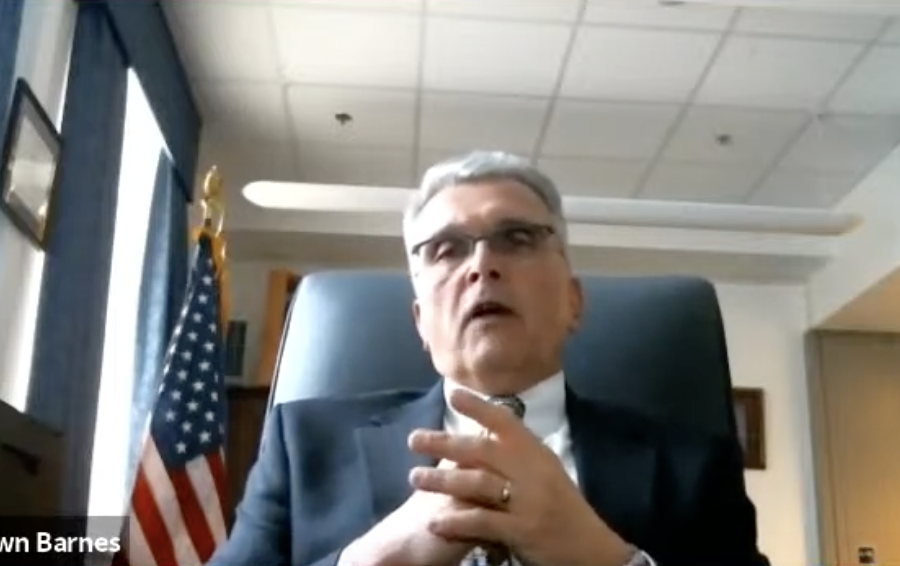A top space policy official in the Department of the Air Force said Dec. 10 he plans to serve in his role until next spring, unless the Trump or Biden administrations nominate someone to fill his post sooner.
Shawn Barnes is performing the duties of the Assistant Secretary of the Air Force for Space Acquisition and Integration, a job created in December 2019. The position entails laying out military space organization and procurement policy and coordinating with other parts of the Pentagon and the national security enterprise.
The assistant secretary job was created alongside the Space Force in the fiscal 2020 National Defense Authorization Act, signed one year ago this month.
Barnes does not formally hold the assistant secretary title because he has not been nominated or confirmed to the job. At the same time, though, he also serves as deputy assistant secretary—a position that requires neither a Presidential endorsement nor the Senate’s approval.
“Given where we are at this point in the administration, it’s unlikely that we would see a nominee for … the assistant secretary position,” Barnes said at a Via Satellite conference on military satellite communications. “My expectation, my planning horizon, is to do this job into the May timeframe.”
“If the administration nominates and Senate confirms someone earlier, there will be no one happier than me, and I can move into the deputy position by being the deputy, and not being both the deputy and performing the duties of [assistant secretary],” he added.
It’s possible the White House could pick Barnes as the permanent assistant secretary, prompting a search for a new deputy.
Whoever lands the head job will face the tasks of being a top space adviser to the Air Force Secretary as well as crafting the future Space Force. Barnes is a leading voice in the effort to streamline the work of multiple space technology development and acquisition agencies and has been in charge of several reports due to Congress on Space Force organization. He has also been the liaison between main Space Force offices in the Pentagon and Colorado, and is a key figure in building out the Office of the Chief of Space Operations.
“Each of these integration activities has a different flavor,” Barnes said. “But there’s a shared theme: the need to integrate, not simply augment other capabilities into our national security space enterprise.”
Editor’s Note: The story was updated at 10:15 a.m. on Dec. 11 to clarify the headline.
